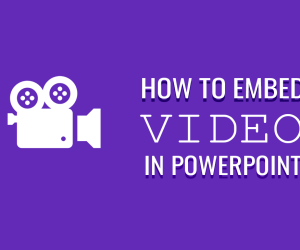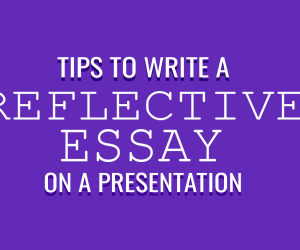Being able to envision something and make it into being is transformative for creatives and everyone they touch. Imagine how less vibrant our lives would be without timeless stories, touching music, or thought-provoking art!
While rewarding and liberating, creative pursuits can also be fiercely competitive. It’s easy to turn one’s creative endeavors into a singular obsession, which may do you more harm than good. By all means, continue to grace us with your extraordinary creations, but keep the following tips in mind to do so with greater care, enjoyment, and success.
1. Learn – it is a never-ending journey
Landing a job in a creative field is a dream come true, but it can also lead to stagnation. If you work in a niche role in a large agency, chances are you’ll be doing the same kind of work more often than not. If your job doesn’t offer new creative challenges, seek them out yourself or risk falling behind.
There’s always something new to learn and discover. Whether it’s keeping up with industry trends or embracing a new side of your craft, personal and professional growth opportunities abound.
It’s also a good idea to step out of your comfort zone when looking for inspiration. For instance, if you’re a logo designer, you might want to start dabbling with architectural visualization or art posters.
It’s not unheard of for creatives to take up hobbies & interests that have nothing to do with their field to gain new perspectives. The more diverse your input, the more ideas you’ll have to draw on and be able to combine in a unique way.
2. Cultivate your network
Talent will set you on a creative path. Hard work will make you competent at your craft. A strong network of like-minded creative professionals will get you hired. According to some surveys, around 70% of employees got to where they are thanks to the right connection.
It’s important not to go through the motions to get noticed but to put genuine effort into creating meaningful connections. Put yourself out there! Attend events or join organizations that increase your chances of meeting and interacting with experienced people in your field.
Much of the time, they’ll be glad to help you out. Schmoozing may lead to job opportunities, but it can accomplish much more. Staying connected lets you discover trends earlier and jump on the bandwagon. Exposure to a creative collective can get you out of a slump or have you consider ideas you weren’t even aware of before.
Networking also lets you give back. It can help you share new ideas with your peers or give advice to someone struggling with the same challenges you once faced. A promising young artist or musician you help out today can become a career-defining collab partner tomorrow.
3. Meet AI head-on
A publicly-accessible AI has become a reality in 2023, taking creative fields from writing through photo manipulation to music production and voice acting by storm. It’s not going anywhere and continues to develop at a rapid pace. Not using AI for ethical or copyright reasons is admirable. Not paying attention to it would be foolish.
The trick is to find a way to make these new tools work for you. Rather than relying on AI to do the work for you, treat it as a means of conceptualizing and bringing your ideas into focus.
For example, references are an essential source of inspiration, but what if they don’t exist for something you have in mind? AI has become great at mashing up different themes and styles, allowing you to experiment with concepts it would have taken far too long to explore manually. Using the right prompts can create an AI image that serves as the springboard for your distinctive design.
You should also keep tabs on AI development in your niche to set yourself apart by offering something it cannot. AI can’t reason with clients. It doesn’t understand how to convey deep emotion or draw on personal experiences to create something truly unique. Heck, it can’t even draw hands properly yet.
4. Create your brand
Artists don’t create in a vacuum. Whether you’re interested in others’ approval or turning a passion into an income source, no one will care if you’re not accessible and present. You need to develop a personal brand to that end. An all-encompassing identity people will instantly recognize and remember as being different from others.
These days, the easiest way to build up your brand is to create and maintain an online presence. It starts with an attractive portfolio site and extends through communities like ArtStation to more conventional social networks.
Social interaction plays a vital role. On the one hand, you’ll want to connect with other creatives online. Reach out to them, learn from them, and offer to work on projects together. On the other, engaging with your audience shows you’re approachable and may lead to opportunities like commission work.
When working on your brand, it’s important to maintain consistency. What creative work do you specialize in? What principles do you follow, and what causes do you support? Reflect your work as well as your personality through a consistent tone of voice, color schemes, logos, etc., across your accounts.
5. Don’t neglect your online safety
Having an online presence as a creative makes you a target of numerous cybersecurity threats. For example, you might be handling a client’s sensitive data or trade secrets while working on a marketing campaign for an upcoming product. Or, your large online following might attract crooks who’ll want to compromise your accounts or press you into giving them money.
Rather than become yet another victim of scams and hacks, you should start thinking about protecting your assets and reputation right now.
A personal or business password manager (depending on whether you work alone or for a company) is a great first step, especially if you use variants of the same login details for multiple accounts. The manager will help you replace your passwords with more robust ones while letting you keep track of them all easier. The best ones come with two-factor authentication that maintains account security even if someone finds one of your passwords.
Freelancing and the recent work-from-home boom make it easier to leave your desk & draw inspiration from all around. It’s tempting to start banging out a chapter of your novel or work on a poster while sitting on a terrace with a seaside view. Your creative juices might be bubbling, but your connection isn’t secure. In this case, perhaps a VPN would be your best bet. You can try services as suggested on the Privacy Journal.
Public Wi-Fi is a serious cybersecurity hazard you should avoid. Hotspots are easy to fake and even easier to monitor, even if the connection itself seems harmless. A hacker might hijack it and become privy to any conversations or sensitive info you type while connected.
One solution is to ditch public Wi-Fi. The other is to install a VPN, especially when traveling. Doing so creates an encrypted connection others can’t access. This allows you to communicate with clients, share files, or make purchases from anywhere without fear.
6. Roll with the punches
Setbacks and frustration are a fundamental part of any success journey. Learning to embrace them will keep your motivation up while reducing the chances of burnout. Adopting a positive mindset makes a considerable difference. After all, getting rejected for one gig might leave you open to accepting another your skills and talents are better suited for.
Creatives tend to obsess over the smallest details. They can spend hours trying to fix minor mistakes 99% of people admiring their work won’t notice or care about. Instead of striving for perfection, embrace a “good enough” mentality. You’ll get less frustrated that way and have more to show for the effort you put in.
It’s hard not to take criticism personally when you’ve left yourself vulnerable through a deeply personal creation. Sometimes people will nitpick or put you down just to make themselves feel better. Ignore them.
Rather, embrace the valid points well-meaning critics make. If possible, always have someone whose opinion you respect look your work over before publishing it. A second pair of eyes is invaluable for catching mistakes or pointing out approaches you wouldn’t have considered otherwise.
7. Practice self-care
When inspiration strikes, it’s easy to hole oneself up, not see the sunlight, and subsist for days on junk food until one’s masterpiece is complete. That might work a time or two, but it’s a long-term recipe for health problems and burnout.
You don’t misuse your guitar or graphics tablet, so why not treat yourself with the same respect? If you’re not getting at least seven hours of sleep each night, start by regulating your sleep schedule. That means sticking to the same bedtimes and laying down the electronics at least an hour before to give your brain time to unwind.
Examine your eating & exercise habits and gradually make improvements. A healthier diet and more physical activity will help you focus and give you more energy to tackle the most challenging tasks.
Forming connections to further your creative pursuits is fine, but don’t forget about your family and other friends, either. Make room for people in your life and plan activities that have nothing to do with your field to recharge your batteries.
Lastly, realize your worth and learn to set boundaries. Not taking on yet another project or refusing to work outside the hours you set for yourself are healthy ways of taking control and maintaining a more balanced lifestyle.



